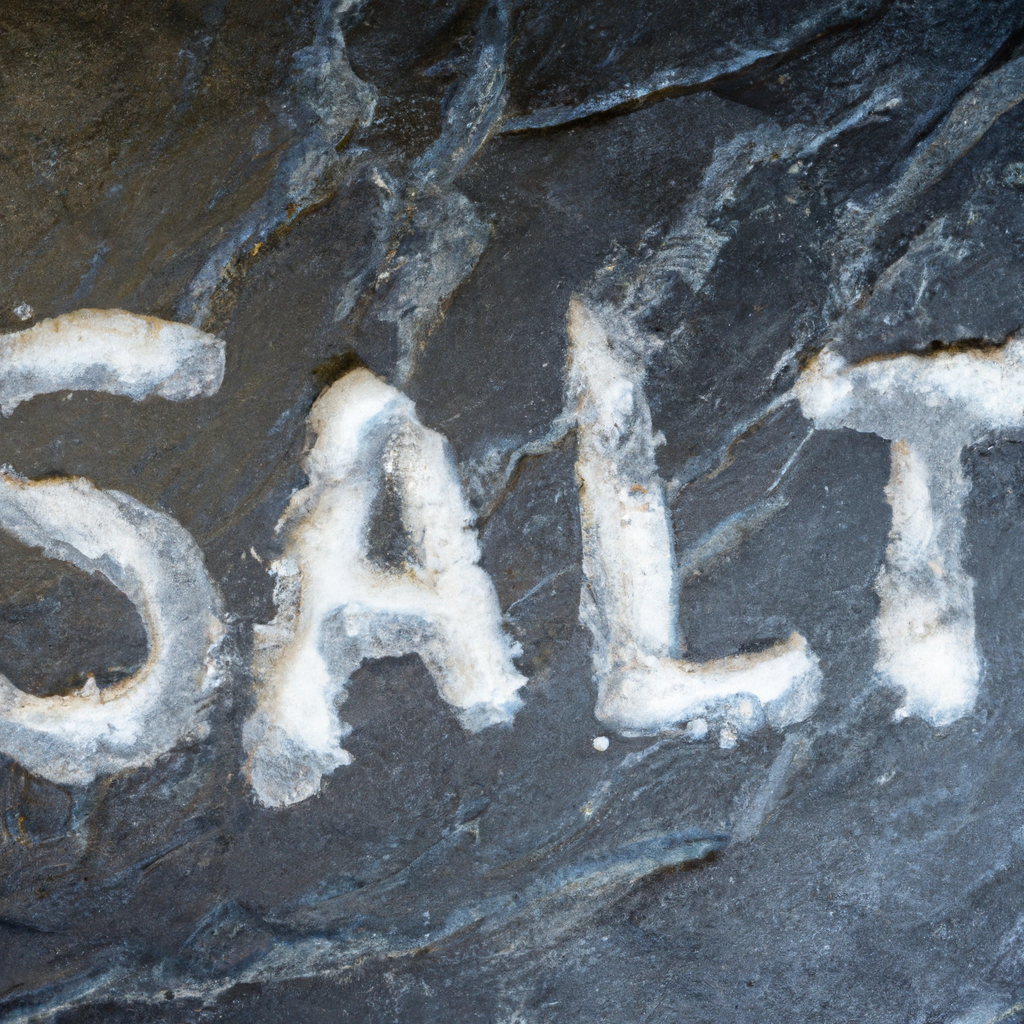Contrary to popular belief, salt-free diets don’t have to be bland and boring. For those who are looking to improve their health and fitness by cutting down on sodium, going salt-free offers a wealth of benefits. But just what is a salt-free diet? In this article, we explore this concept and look at the potential health benefits of cutting down on sodium.
1. Exploring the Salt-Free Diet: What is it and What are the Benefits?
The salt-free diet has recently been gaining traction as a healthy lifestyle choice. The diet is focused on avoiding foods that are high in sodium, and instead eating a more balanced menu using natural, low-sodium ingredients. While the diet can sound intimidating, there are immense health benefits that come with reducing your salt intake.
Benefits of a Salt-Free Diet:
- Lower Blood Pressure: Many studies have documented a link between reduced salt intake and lower blood pressure. By cutting out salty snacks and processed foods, the salt-free diet can help keep your blood pressure in the healthy range.
- Improved Heart Health: As well as a lowered blood pressure, reduced salt intake can lower your risk of heart disease. This is because the high sodium content of processed foods can inflame blood vessels and lead to heart failure. The salt-free diet promotes healthier alternatives that can reduce your risk.
- Weight Loss: Many of the processed foods high in salt are high in calories, which can contribute to weight gain. By swapping these out for fresher, lower calorie options, the salt-free diet can help you get to your health goals.
By committing to a salt-free lifestyle, you can enjoy the benefits of improved health and lower blood pressure. It can take some time to adjust to the diet, but with the right knowledge and perseverance it is achievable.
2. The Benefits of Reducing Salt Intake
One of the main benefits of reducing salt intake in our diets is lowering blood pressure. In our country, over 65 million people suffer from high blood pressure. By reducing salt, sodium and processed foods from our diets, we can drastically improve our heart health. Our kidneys also benefit, as too much sodium can weaken them over time.
Reducing salt can also help improve your skin health. Too much salt in our diets can lead to water retention and puffiness in the skin. As well, salt can cause our skin to look dry and wrinkles to appear more noticeable. Eating food with less salt can help improve the appearance of our skin and make us feel more confident.
- Lower Blood Pressure – Our hearts and kidneys benefit from reduction in salt.
- Improve Skin Health – Eating food with less salt helps improve the appearance of our skin and make us feel more confident.
3. Tips for Cutting Salt from Your Diet
Eating too much sodium can have serious adverse health effects, like high blood pressure and an increased risk of stroke. To help keep your sodium consumption in check, here are some helpful :
- Watch Labels: Check nutrition labels on processed food to limit high-sodium items like salted snacks, pickles, condiments, and canned goods. It’s also important to compare different brands of the same type of food to find the one with the lowest sodium.
- Ditch Table Salt: If you’re still sprinkling salt on your food, stop it! Use other ingredients to boost the flavor, like fresh herbs, spices, and lemon or lime juice. Vinegar, garlic, horseradish, garlic, onion powder and paprika can also provide big flavor boosts without the salt.
Another great way to control sodium content is to cook at home using fresh, unprocessed ingredients. You can also eat out with confidence – just be sure to ask about sodium content and seasoning techniques ahead of time.
4. Achieving Your Health Goals Through Straighter Eating
Healthy eating doesn’t mean deprivation. Instead, it’s as simple as eating closer to nature. Here are four tips for straighter eating that can help you to stay healthier and reach your goals:
- Limit processed foods. Whenever possible, reach for fresh, unprocessed produce like apples, kale, and Brussels sprouts. These whole foods are full of the nutrition and fiber you need.
- Choose your carbs wisely. Whole grain bread, brown rice, and quinoa are often far better choices than refined white bread, white rice, and pasta.
- Include more plant-based proteins. Nuts, beans, and tofu can make great additions to your meals.
- Balance your plate. Compose your plate so that you include lean proteins, whole grains, and veggies–and don’t forget healthy fats like avocados and olives.
Straighter eating is all about choosing wholesome, nourishing foods that provide your body with the most sustenance. By applying these tips, you can create a nutritional strategy that meets your individual health goals.
Q&A
Q: What is a salt-free diet?
A: A salt-free diet is a type of dietary regimen that eliminates or significantly reduces the amount of salt and other sodium-containing foods and beverages in the diet. Although there is no single set of guidelines for following this type of diet, some common practices include limiting processed foods, avoiding or reducing the use of table salt, and avoiding salty foods such as chips and salted nuts.
Q: What are the benefits of following a salt-free diet?
A: Following a salt-free diet can have many potential benefits, including lowered blood pressure, reduced risk of cancer, and improved kidney health. It can also help reduce excess fluid retention and the risk of associated health problems such as swelling and edema. In addition to its health benefits, a salt-free diet can be beneficial to those looking to lose weight, as it can help reduce overall caloric intake.
A salt-free diet is a great way to enjoy the fresh flavors of whole food ingredients without compromising your health. With this diet, you’ll be able to take control of the amount of salt you consume, ultimately helping to reduce your risk of developing certain health conditions, while also allowing you to enjoy tasty meals. So forget the pre-packaged, calorie-packed meals of the past; you’ll now be able to eat healthier and feel happier!
A salt-free diet is a way of consuming food in which one limits their intake of salt and sodium-containing foods. This type of dietary approach is ideal for those individuals who are at risk for various health conditions due to their salt and sodium intake. It has been found to help reduce blood pressure, improve heart health, reduce the levels of toxins in the body, and even help individuals who are trying to lose weight.
One of the main benefits of a salt-free diet is that it helps to reduce the amount of salt that individuals consume. By limiting one’s intake of sodium-containing foods, such as processed meats, canned soups, and certain condiments, individuals are able to lower their consumption of salt. This can be especially beneficial for those who have high blood pressure or other conditions which can be worsened by a high salt intake. Additionally, reducing sodium intake can help to reduce the risk of certain types of heart disease, stroke, and other health conditions.
A salt-free diet also helps to reduce the amount of toxins that are present in the body. A high-sodium diet can leave individuals prone to a buildup of toxins in their bodies, which can lead to fatigue, headaches, and other issues. By limiting one’s intake of sodium-based foods, these toxins can be minimized, allowing individuals to feel more energetic and healthy.
Finally, a salt-free diet can also be beneficial for those who are trying to lose weight. By limiting the amount of sodium-based foods that individuals consume, they can find that their weight-loss efforts are more successful. Additionally, many of the traditional weight-loss methods focus on reducing the amount of fat and sugar in one’s diet, but by reducing the amount of salt and sodium in one’s diet as well, individuals can find that their efforts to lose weight are more successful.
In conclusion, a salt-free diet is a sensible and effective way of eating that can provide numerous health benefits. By limiting their intake of sodium-containing foods, individuals can lower their risk of various health conditions, reduce the amount of toxins in their body, and even aid in their weight-loss efforts. For these reasons, following a salt-free diet can be a great way to improve one’s health and wellbeing.
